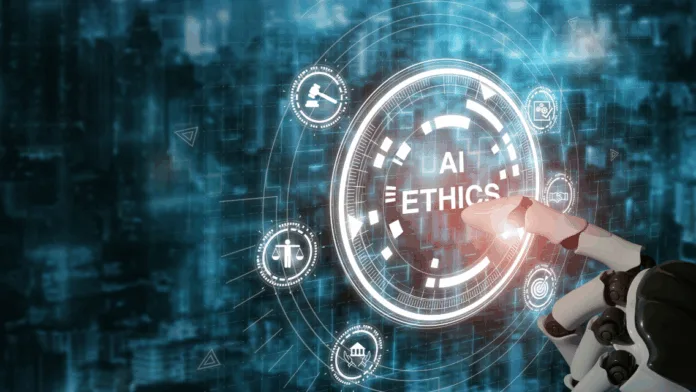
As artificial intelligence (AI) continues to revolutionize various industries, the conversation around AI and ethics has become increasingly important. While automation brings efficiency, innovation, and scalability, it also raises moral questions about responsibility, bias, privacy, and control. This article explores the complex relationship between AI development and ethical standards, highlighting key dilemmas, real-world examples, and possible solutions.
The Rise of AI and the Ethical Landscape
The integration of AI into daily life has been swift and impactful. From self-driving cars and virtual assistants to healthcare diagnostics and facial recognition, AI technologies are increasingly making decisions that affect human lives. As these systems become more autonomous, ethical considerations surrounding their design, deployment, and outcomes cannot be overlooked.
Key Ethical Concerns in AI
1. Bias and Discrimination
One of the most pressing issues in AI ethics is algorithmic bias. Machine learning models are trained on data that may reflect existing societal prejudices. As a result, AI systems can inadvertently perpetuate or even amplify discrimination in areas such as hiring, lending, policing, and healthcare.
2. Privacy and Surveillance
AI-driven surveillance tools, especially facial recognition technologies, have stirred controversy over privacy rights. While these tools can enhance security, they also risk eroding civil liberties when used without consent or oversight.
3. Transparency and Accountability
Many AI models operate as “black boxes,” offering little insight into how decisions are made. This lack of transparency can lead to situations where no one is clearly responsible for an AI system’s actions, creating challenges in enforcing accountability.
4. Job Displacement
Automation has already transformed industries such as manufacturing and retail. While it creates new roles, it also displaces workers, especially in low-skill jobs. Balancing technological progress with social responsibility is essential to mitigate negative economic impacts.
5. Autonomy and Decision-Making
AI is increasingly used in high-stakes decision-making, such as autonomous vehicles or medical diagnostics. Determining how much autonomy AI should have and under what circumstances humans should retain control is a fundamental ethical concern.
Approaches to Ethical AI Development
1. Ethical Frameworks and Guidelines
Several organizations and governments are developing ethical AI guidelines. These frameworks advocate for principles such as fairness, transparency, and accountability to ensure responsible AI development.
2. Human-in-the-Loop (HITL) Systems
Incorporating human oversight in AI decision-making processes can reduce errors and unethical outcomes. HITL systems ensure that AI complements human judgment rather than replaces it.
3. Explainable AI (XAI)
XAI aims to make AI decision-making processes more understandable to humans. This transparency builds trust and makes it easier to audit AI systems for fairness and accuracy.
4. Ethical Auditing
Organizations are beginning to perform independent audits of AI systems to identify and address ethical risks. These audits evaluate the impact of AI technologies on various stakeholders and ensure alignment with societal values.
Real-World Examples of AI Ethics in Action
- Healthcare AI: Algorithms used in diagnosing diseases must be trained on diverse datasets to avoid bias. Inaccurate predictions can lead to life-threatening consequences.
- Facial Recognition: Some cities have banned the use of facial recognition by law enforcement due to privacy and racial bias concerns.
- Hiring Algorithms: Companies like Amazon have discontinued AI-based hiring tools after discovering gender bias in their decision-making processes.
The Future of AI and Ethics
As AI continues to evolve, ethical considerations will remain central to its acceptance and success. Educating developers, policymakers, and the public about the implications of AI is essential for creating responsible technology. Ethical AI is not just a technical challenge but a societal one that demands collaboration across sectors.
Conclusion
AI and ethics are inextricably linked in today’s digital world. As automation becomes more advanced and integrated into human life, addressing moral dilemmas head-on is crucial. By developing AI responsibly—with fairness, transparency, and accountability—we can ensure that technological progress aligns with human values.